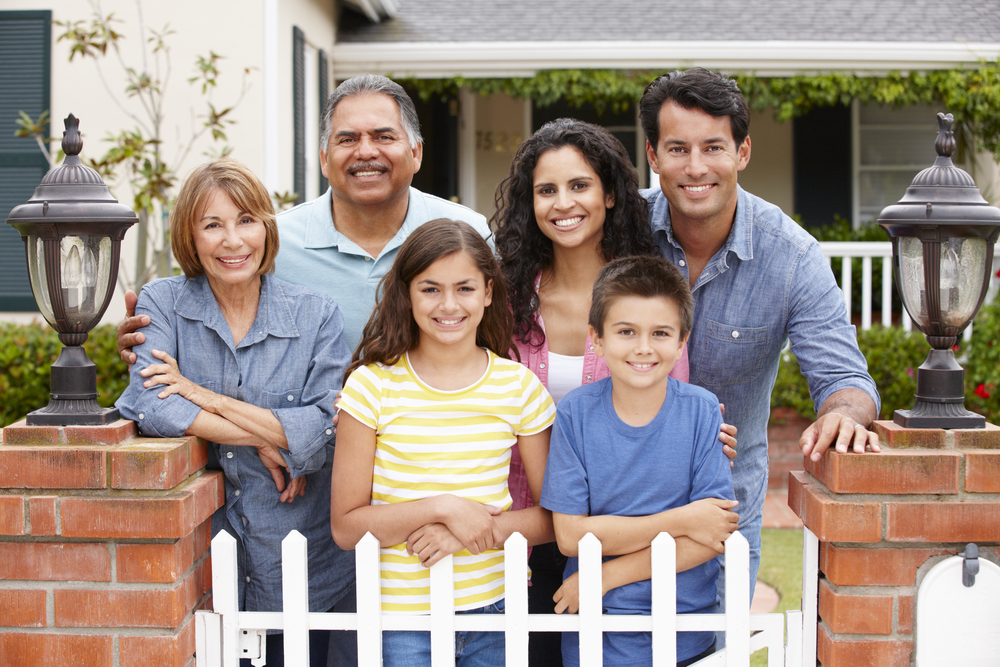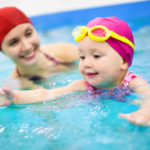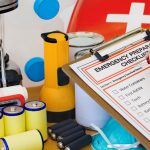Home may be where the heart is, but it’s also where accidents happen.
Literally millions of Americans wind up in the ER each year due to home accidents, many of which are preventable.
The home should be a welcoming environment where family members of all ages feel safe and secure.
Children need creative spaces to explore and play, with lots of interesting and stimulating things to do, things that are safe.
If there are plenty of child-friendly options to occupy them, toddlers will be less likely to seek out stimulation by exploring hazardous areas of the home you don’t want them to getting into.
Of course, the home should also be somewhere where elderly relatives can feel safe too.
Being able to relax at home helps boost mental health. When senior citizens are able to retain a high level of independence, it helps both their physical health and cognitive function.
In this article, we’ll explore easy ways in which you can make your home safer for family members of all ages.

Home Safety Tips For Families
1. Be Conscious Of Trip Hazards
Did you know that trips, slips and falls are the most common causes of injury in the home for all age groups? It’s true!
To prevent falls in the home, it’s important to keep potential trip hazards to a minimum. The number one rule is to keep the home tidy, and to ensure every item has a proper storage space.
Make it a habit to place items back in their relevant spaces after use. Teach kids to do the same.
In addition, falls can be prevented by:
- Ensuring cables (from televisions, vacuum cleaners and other appliances) aren’t left hanging loose. This prevents people from tripping over them.
- Installing safety guards across entries to stairs or balconies.
- Ensuring windows (particularly upper-story ones) are kept locked.
- Installing a “night-light” or leaving a hall light on at night, so that family members can make visits to the bathroom without tripping in the darkness.
RELATED: How To Prepare Your Family To Evacuate In An Emergency
2. Install A Medical Alert System
If you have senior members of the family living at home (or living independently), you may want to consider purchasing a medical alert system.
One of the biggest fears faced by senior citizens is becoming injured or ill and being unable to contact anybody for help.
Medical alert systems are designed to be used by vulnerable persons of all ages, and can be particularly useful for those with serious health issues.
These systems are also beneficial for people in convalescence (for example, a person currently recovering from an accident or a medical emergency such as a stroke), and can be useful for mothers of children with ongoing health issues.
When looking for a medical alert system, ask potential vendors whether their product meets the following as standards:
- Power supply backup (in the event of a power outage)
- Two-way communication
- A GPS tracking system
- Fall detection
- Long-range distance
3. Ensure Furniture Is Sturdy And Injury-Proof
Thousands of family members of all ages are injured each year due to furniture toppling over and falling on them, especially young children.
To avoid this, you should ensure that all furniture is sturdy, solid, and secured. This is one important way to make your home safer.
Children should not be able to pull furniture down, push it over, or otherwise displace it. Some items, such as bookshelves or wardrobes, may need to be braced to the wall.
Likewise, televisions or other entertainment units may need to be bracketed or strapped to the wall. Most modern-day flatscreen televisions come with an affixing bracket to do this.
If there are vulnerable people in your home, you might want to consider replacing any furniture which features sharp edges – especially in “high use” areas (think coffee tables in the living room or square stools at the breakfast bar, etc.).
RELATED: How To Child Proof Your Home
4. Consider Garden Safety
If your home has a garden, you might want to consider employing some simple precautions to prevent potential injury.
Tools, like shears, drills and saws (or any other items with sharp edges) should be locked away in a garden shed whenever possible.
You might also want to regularly check any garden fencing for potential hazards. Fence posts can become damaged over time exposing sharp areas.
5. Keep A First-Aid Kit Handy
Try as we might, no amount of childproofing can prevent every accident from happening.
When they do happen, it’s important to have a fully stocked first aid kit available.
In addition, you may want to take the time to learn basic CPR training, or perhaps keep a basic first aid chart on the wall.
The tips and pointers on such a chart could prove invaluable at a crucial moment.
RELATED: How Can I Prevent Household Accidents?
SHARE these important tips to make your home safer by clicking the buttons below.












